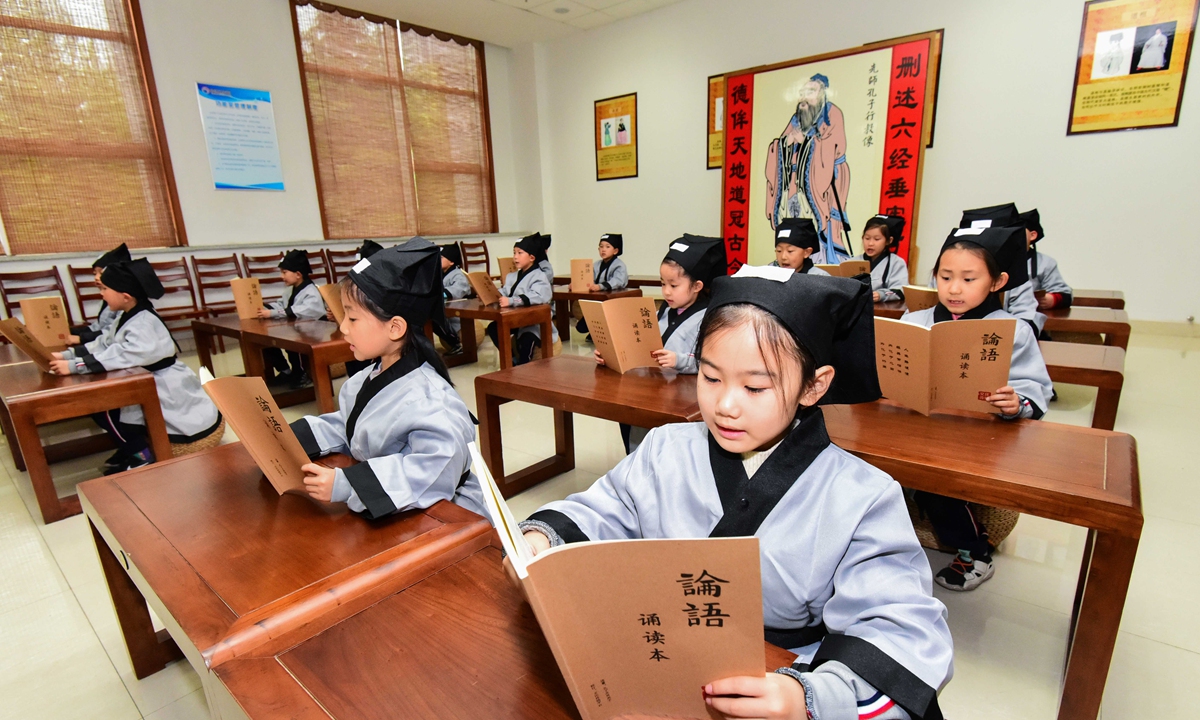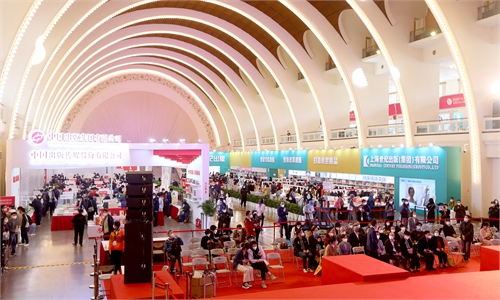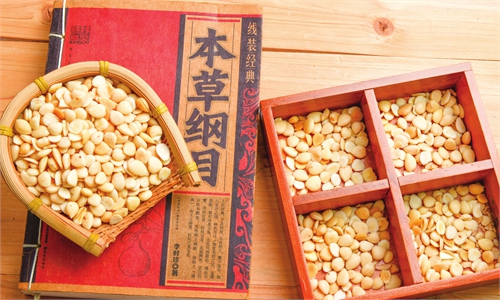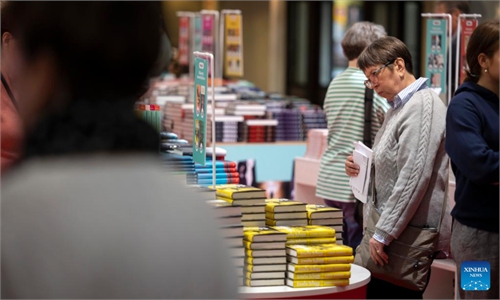ARTS / BOOKS
Confucian classic reaches Malta thanks to local scholar’s translation
Model for the world

Chinese children read The Analects of Confucius. File photo: IC
The Analects of Confucius is a fine example of world literature and the publication of the Maltese version of the ancient Chinese book will further enhance cultural exchanges between China and Malta, said Maltese sinologist and translator of the book Salvatore Giuffre.This marks the first time that The Analects of Confucius, or Lunyu in Chinese, a collection of ideas and sayings from the ancient Chinese philosopher Confucius (551BC-479BC), has been translated into Maltese.
Giuffre spent around two years making the anthology accessible to Maltese readers, especially to young students. Currently, the Maltese version book is available for local readers.
The translated version comes complete with an introduction to the life of Confucius, the era he lived in, his teachings and the key concepts, terms, names and figures mentioned in the classic work.
"The Analects of Confucius is among my favorite works of Chinese literature," Giuffre told the Xinhua News Agency in a recent interview.
"It also counts among the most valuable literary and philosophical works worldwide. Confucius teaches the fundamental virtues of humanity and places man in a system of continuous refinement."
The idea to translate The Analects of Confucius came about when China's Shandong Friendship Publishing House invited Malta's SKS Publishers to attend a seminar on Confucius in 2017 in East China's Shandong Province, the birthplace of Confucius. The event featured various publications of the book in different languages, and SKS Publishers wanted to enrich the collection with a Maltese version.
SKS asked Giuffre to translate the book. Giuffre who is fluent in Chinese, has visited China several times and worked as the Maltese director of the Confucius Institute at the University of Malta.
Giuffre has been studying Chinese since his teenage years. He got acquainted with classical Chinese during his studies as a Chinese major at the University of Bologna in Italy.
"I needed to learn classical Chinese to understand the core of Chinese literary culture and philosophy," he said.
Giuffre noted that Confucius not only teaches people how to become good rulers but also how to govern a country. The Chinese initiative of building a community with a shared future clearly expresses the vision that today's China has in order to promote a peaceful system of good global governance.
"Confucius' idea of good governance can be taken as a model for world harmony, cooperation and governance," he said.
Looking forward, he said he hopes that cooperation between China and Malta in the field of publishing will create opportunities for more translation projects of literary works.




